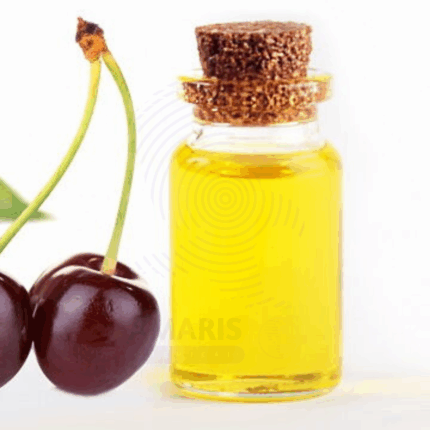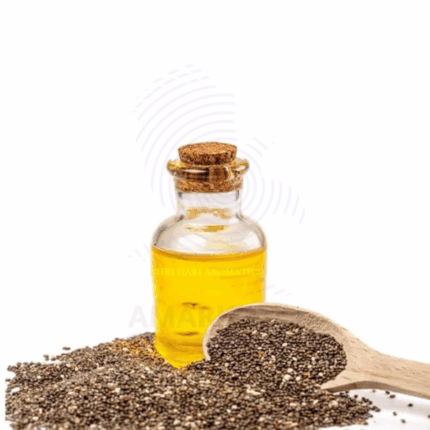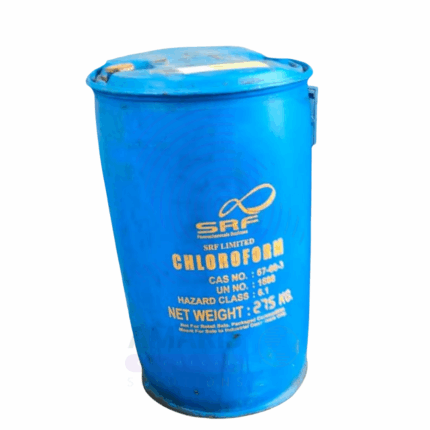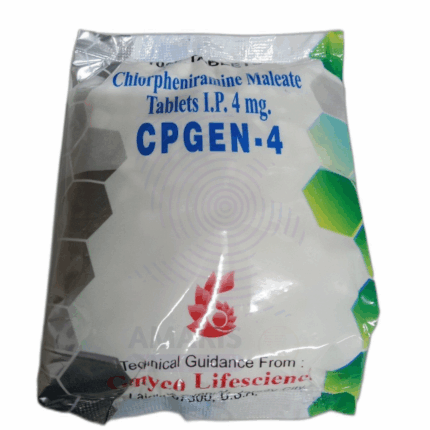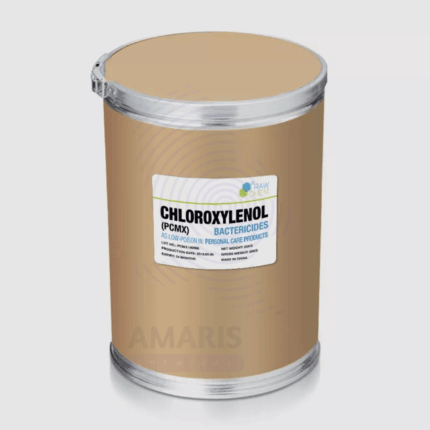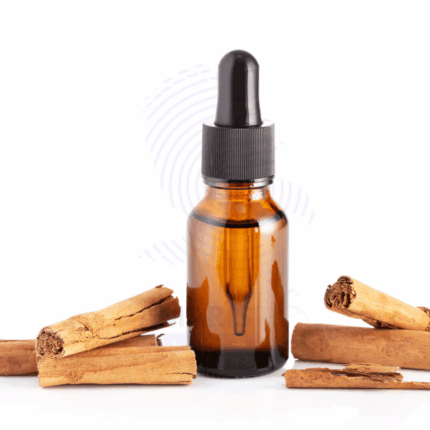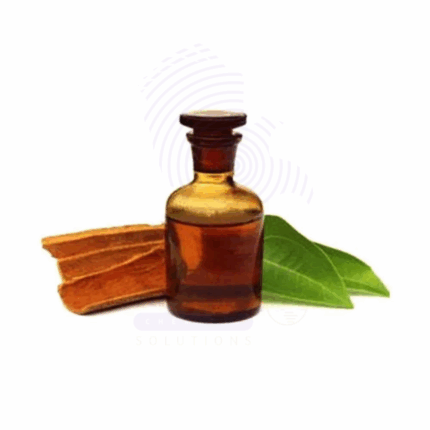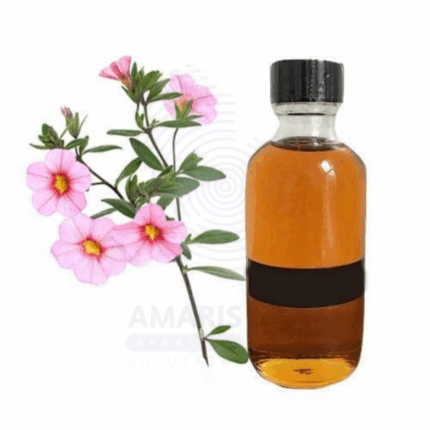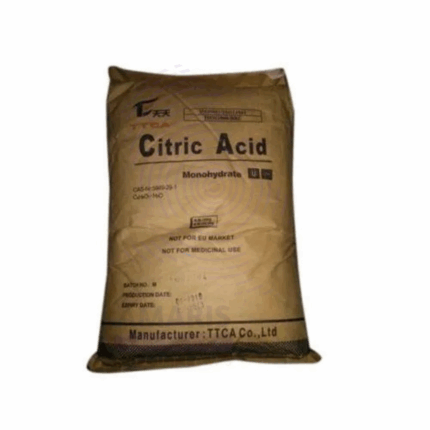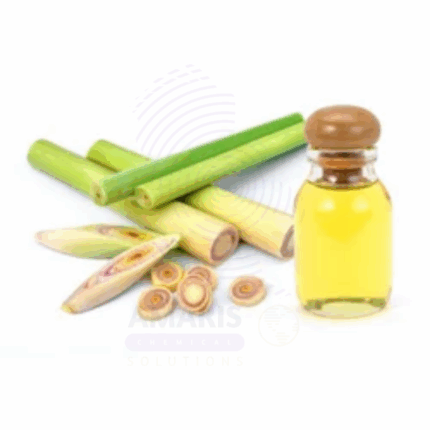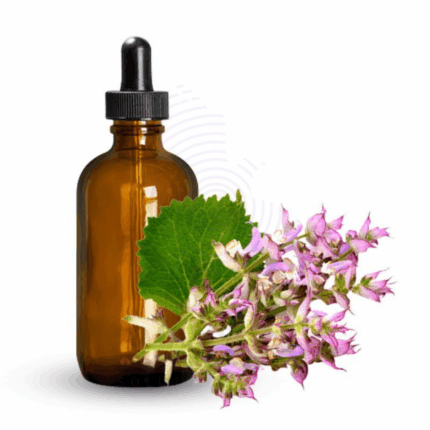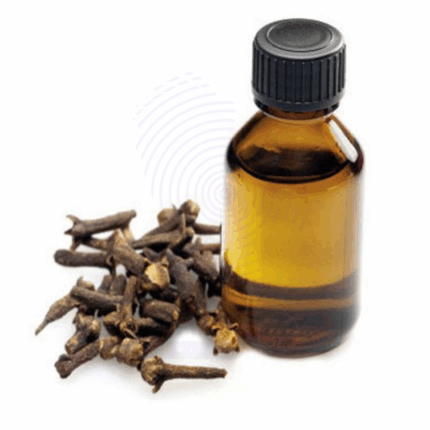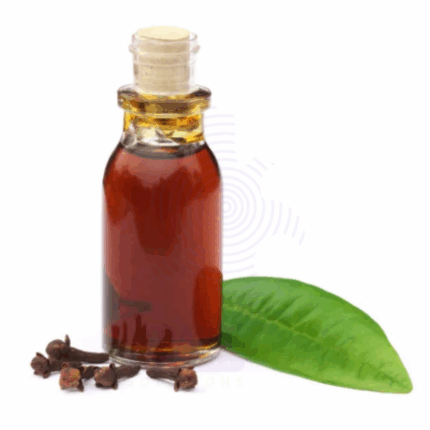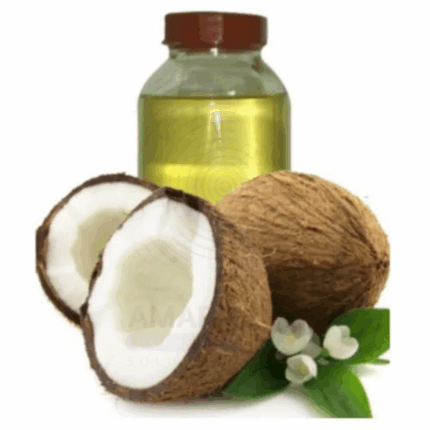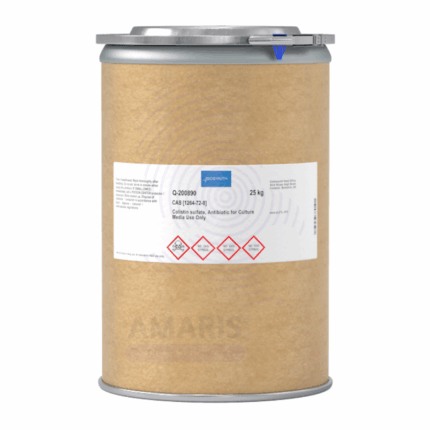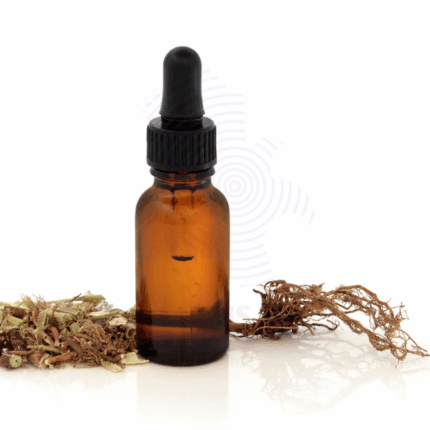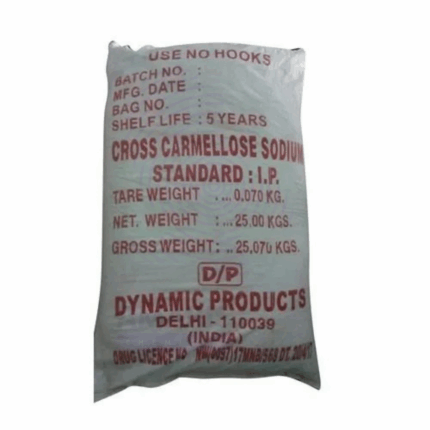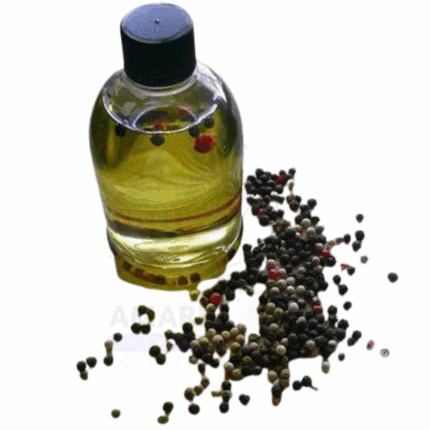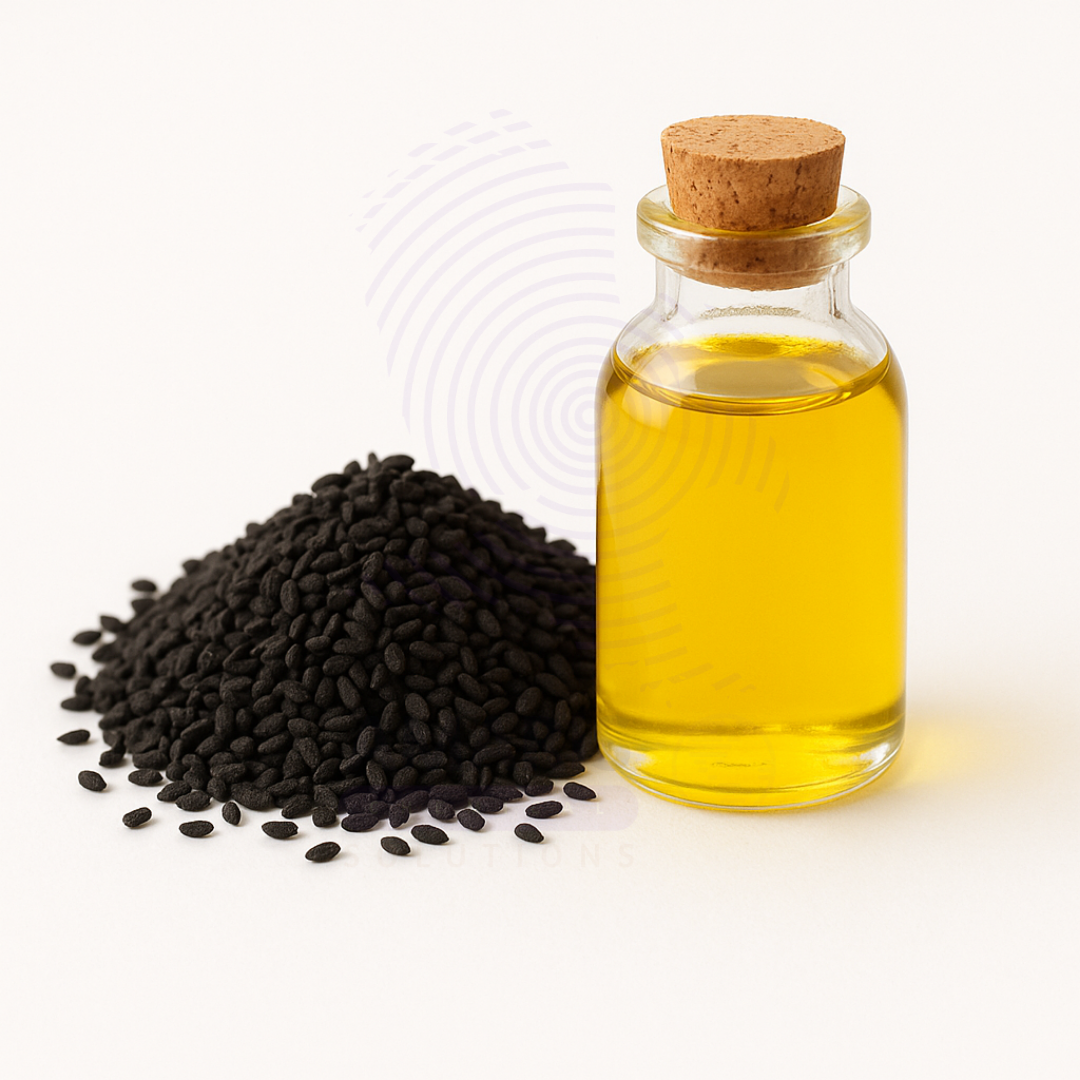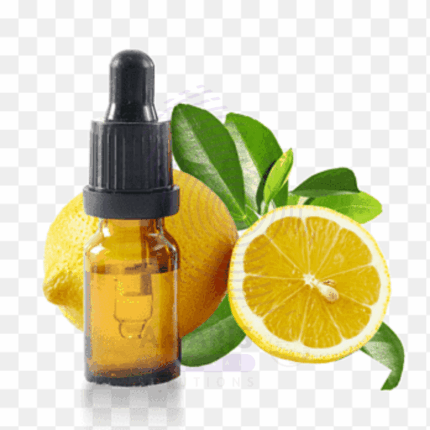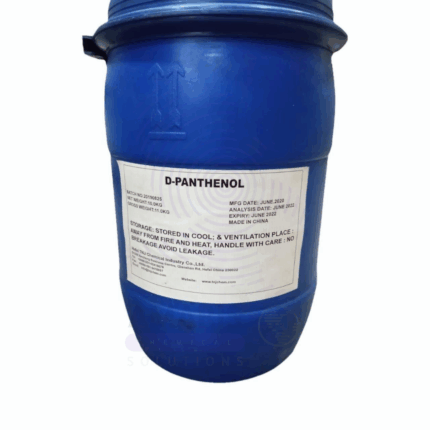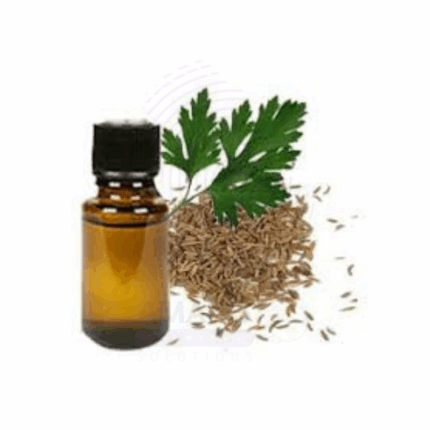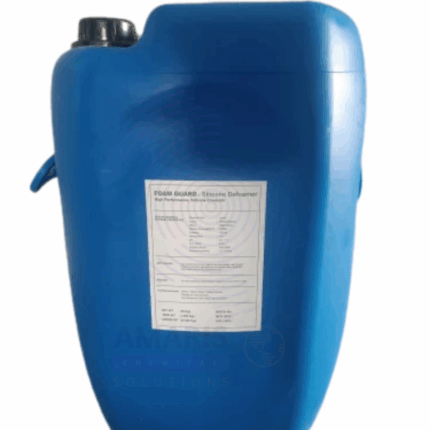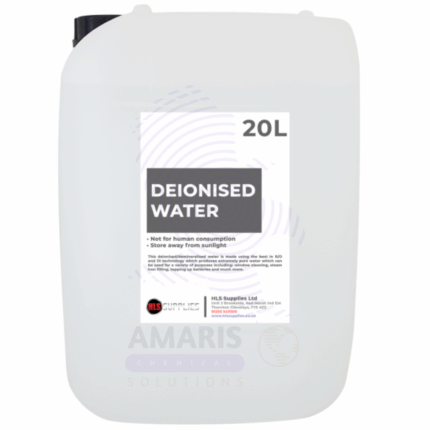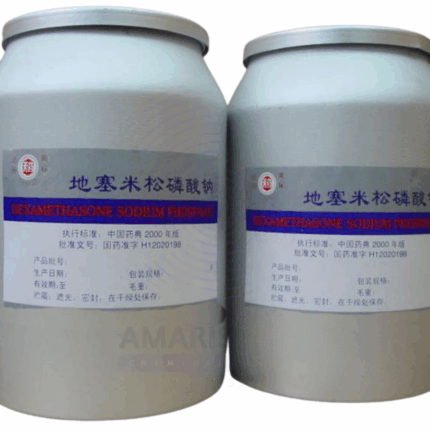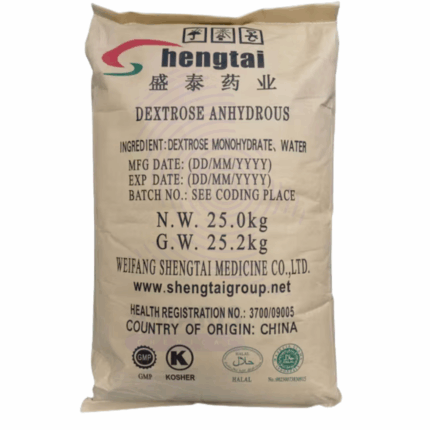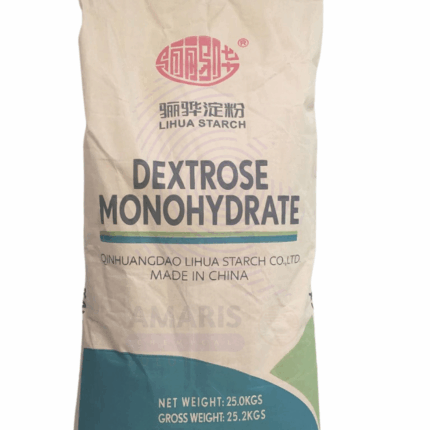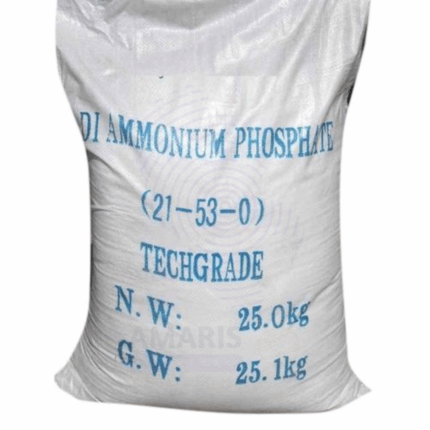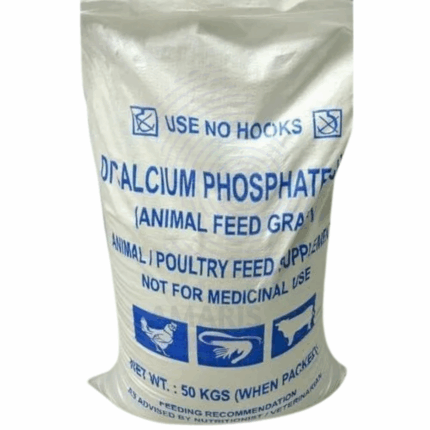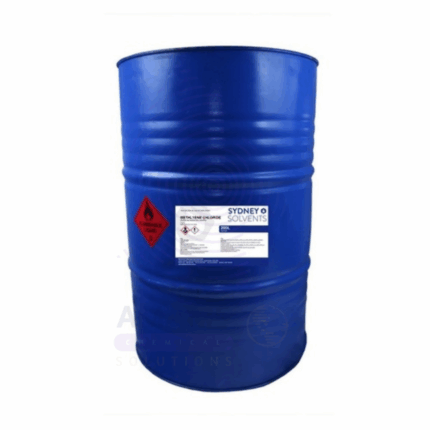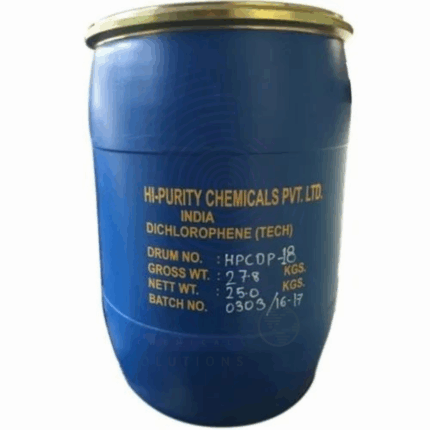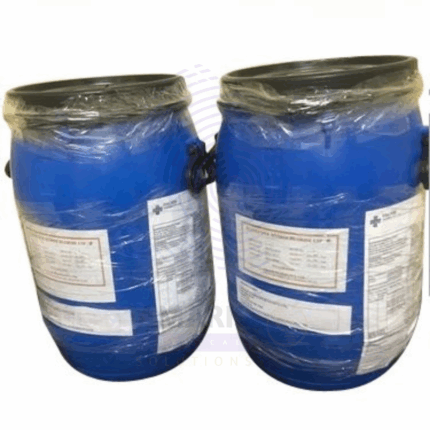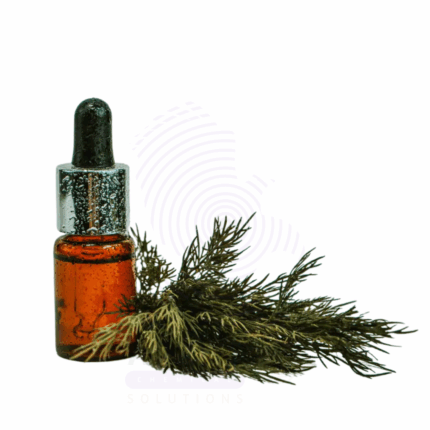Cherry Kernel Oil
Cherry Kernel Oil, extracted from the seeds of sweet cherries (Prunus avium), is a lightweight, golden-yellow carrier oil with a mild, nutty aroma. This oil is produced through cold pressing of cherry kernels and is rich in oleic and linoleic acids, along with naturally occurring tocopherols (Vitamin E) and phytosterols. Known for its excellent emollient, antioxidant, and regenerative properties, it absorbs quickly and nourishes the skin without leaving a greasy residue.
It is widely used in skin care, hair care, baby products, and aromatherapy. Its gentle nature makes it suitable for sensitive and mature skin, while its light texture and stability make it a favored base oil in cosmetic formulations, massage blends, and eco-conscious personal care lines.
Chia Oil
Chia Oil is a cold-pressed, nutrient-rich oil derived from the seeds of the Salvia hispanica plant, native to Central and South America. This light, fast-absorbing oil is celebrated for its exceptionally high content of omega-3 fatty acids (especially alpha-linolenic acid), antioxidants, vitamins, and phytonutrients. It has a mild, nutty aroma and is typically golden in color.
Due to its powerful antioxidant and anti-inflammatory properties, Chia Oil is used extensively in cosmetics, personal care, nutraceuticals, and food products. It helps support skin barrier function, reduce redness, and improve skin elasticity and hydration. In food and dietary supplements, it’s valued for its cardiovascular, brain, and skin health benefits.
Chloramphenicol Palmitate Micronised
Chloramphenicol Palmitate Micronised is a micronized, lipophilic ester derivative of chloramphenicol, designed for improved solubility and bioavailability compared to the parent drug. It appears as a fine, white to off-white powder with enhanced surface area due to micronization. This antibiotic is widely used for oral formulations, particularly pediatric suspensions, due to its palatability and controlled release properties. Chloramphenicol Palmitate exhibits broad-spectrum antibacterial activity against both Gram-positive and Gram-negative bacteria. Its ester form offers better stability and reduced bitterness, making it a preferred choice in pharmaceutical preparations.
Chlorhexidine Digluconate
Chlorhexidine Digluconate is a concentrated aqueous solution of chlorhexidine salt (digluconate form), a potent broad-spectrum antimicrobial agent. It is a clear to slightly yellow viscous liquid with a mild characteristic odor. This antiseptic and disinfectant is widely used in medical, personal care, and industrial applications for its ability to effectively kill bacteria, fungi, and some viruses by disrupting microbial cell membranes. Chlorhexidine Digluconate is valued for its residual antimicrobial activity, low toxicity, and compatibility with various formulations.
Chlorobutanol BP
Chlorobutanol BP (also known as 1,1,1-Trichloro-2-methyl-2-propanol) is a white crystalline solid or powder, with a slight camphor-like odor and a bitter taste. It is a multifunctional preservative, anesthetic, and antimicrobial agent commonly used in pharmaceutical, cosmetic, and personal care products. Chlorobutanol exhibits bacteriostatic and fungistatic properties, making it effective in preventing microbial contamination in aqueous formulations. It also possesses mild local anesthetic effects, frequently used in ophthalmic and injectable preparations as a preservative and stabilizer.
Chlorocresol BP
Chlorocresol BP, also known as PCMC (Para-Chlorometa-Cresol), is a white to off-white crystalline powder with a characteristic phenolic odor. It is a chlorinated phenol derivative widely used as a broad-spectrum antimicrobial preservative. It exhibits effective bactericidal and fungicidal activity, making it a preferred preservative in pharmaceutical, cosmetic, and personal care products. Chlorocresol is valued for its stability, solubility in aqueous and alcoholic systems, and compatibility with various formulation types. It helps inhibit microbial growth, thereby enhancing product shelf life and safety.
Chloroform
Chloroform (Trichloromethane) is a clear, colorless, volatile liquid with a sweet, pleasant odor. It is a widely used organic solvent with excellent solvency for many substances. Historically employed as an anesthetic, chloroform is now primarily used in laboratories and industry for extraction, degreasing, and chemical synthesis. It has moderate volatility and is heavier than air, requiring careful handling to avoid inhalation hazards. Its chemical stability and ability to dissolve fats, alkaloids, and other substances make it valuable in pharmaceutical, chemical, and industrial processes.
Chloropheniramine Maleate
Chloropheniramine Maleate is a first-generation alkylamine antihistamine used primarily to relieve allergy symptoms by blocking H1 histamine receptors. It appears as a white or off-white crystalline powder, freely soluble in water and alcohol. Known for rapid onset and moderate duration of action, it’s widely formulated in pharmaceuticals. It also exhibits mild anticholinergic and sedative effects.
Chlorpheniramine Maleate
Chlorpheniramine Maleate is a first-generation alkylamine antihistamine used primarily to relieve allergy symptoms by blocking H1 histamine receptors. It appears as a white or off-white crystalline powder, freely soluble in water and alcohol. Known for rapid onset and moderate duration of action, it’s widely formulated in pharmaceuticals. It also exhibits mild anticholinergic and sedative effects.
Cinnamon Leaf Oil
Cinnamon Leaf Oil is an essential oil obtained by steam distillation of the leaves of the Cinnamomum zeylanicum or Cinnamomum verum tree. It has a warm, spicy, and slightly sweet aroma, distinct from cinnamon bark oil, with high levels of eugenol. This oil is prized for its antimicrobial, antioxidant, and analgesic properties. It is widely used in perfumery, aromatherapy, personal care, and natural medicine.
Used traditionally for respiratory relief, oral health, and topical analgesia, cinnamon leaf oil is now integrated into natural formulations for skincare, oral hygiene, massage, and household cleaning products. Its invigorating scent and therapeutic versatility make it valuable across cosmetic, pharmaceutical, and cleaning industries.
Cistus Oil
Cistus Oil, also known as Rock Rose Oil, is an aromatic essential oil derived from the resinous leaves and stems of the Cistus ladanifer or Cistus creticus plant through steam distillation. It has a warm, sweet, herbaceous scent with amber and balsamic undertones. This oil is highly valued for its grounding aroma and its historical use in wound healing, skin care, and emotional balancing.
Traditionally used in Mediterranean herbal practices, Cistus Oil is rich in monoterpenes and sesquiterpenes that offer antioxidant, antimicrobial, and skin-regenerating properties. It is widely utilized in natural perfumery, skin care formulations, wellness blends, and spiritual or meditative rituals.
Citric Acid Anhydrous
Citric Acid Anhydrous is a white, crystalline organic acid widely used across food, pharmaceutical, cosmetic, and industrial sectors. It is the anhydrous form of citric acid, meaning it contains no water molecules in its crystal lattice, resulting in higher purity and more concentrated acidic properties compared to its monohydrate form. Derived from natural sources like citrus fruits or produced via microbial fermentation, citric acid anhydrous is valued for its sour taste, excellent chelating ability, and buffering capacity. It serves as a natural preservative, pH adjuster, antioxidant synergist, and cleaning agent, making it a versatile ingredient in many formulations.
Citric Acid Monohydrate
Citric Acid Monohydrate is a white, crystalline powder or granule form of citric acid containing one molecule of water per molecule of acid. It is a natural organic acid commonly derived from citrus fruits or produced by fermentation processes. Citric Acid Monohydrate is widely used as an acidulant, preservative, and chelating agent in various industries. Compared to the anhydrous form, it has a slightly lower acid concentration due to the water molecule but offers excellent solubility and stability. It is prized for its sour flavor, buffering capacity, and ability to bind metal ions, making it indispensable in food, pharmaceutical, cosmetic, and industrial applications.
Citronella Oil
Citronella Oil is an essential oil obtained from the leaves and stems of various species of Cymbopogon grass, most commonly Cymbopogon nardus and Cymbopogon winterianus. It is extracted via steam distillation and is known for its fresh, lemony aroma. Citronella Oil is widely recognized for its insect-repelling properties, as well as its use in perfumery, aromatherapy, and natural cleaning products.
Rich in citronellal, geraniol, and citronellol, this oil is highly valued for its antimicrobial, antifungal, and deodorizing effects. It plays a significant role in personal care formulations, environmental hygiene products, and therapeutic applications.
Clary Sage Oil
Clary Sage Oil is a high-grade essential oil obtained through steam distillation of the flowering tops and leaves of Salvia sclarea, a perennial herb native to the Mediterranean region. It is known for its sweet, herbaceous, tea-like, and slightly floral aroma, with a high content of linalyl acetate, linalool, and sclareol. These compounds contribute to its antispasmodic, sedative, hormone-balancing, and antimicrobial properties.
This oil is widely valued in aromatherapy, cosmetics, perfumery, and wellness applications. It is particularly renowned for supporting women’s health, relieving stress, improving skin tone, and promoting emotional well-being. Clary Sage Oil is a key ingredient in holistic health and self-care routines and is frequently used in natural fragrance and therapeutic formulations.
Clotrimazole BP
Clotrimazole BP is a broad-spectrum antifungal agent belonging to the imidazole class. It appears as a white to off-white crystalline powder that is practically insoluble in water but soluble in organic solvents like ethanol and chloroform. Clotrimazole is widely used in pharmaceutical formulations for the treatment of fungal infections affecting the skin, mucous membranes, and nails. Its mechanism involves inhibition of ergosterol synthesis, a vital component of fungal cell membranes, leading to increased cell permeability and fungal cell death. BP2000 indicates compliance with British Pharmacopoeia standards ensuring high purity and consistent quality suitable for pharmaceutical applications.
Clove Bud Oil
Clove Bud Oil is a potent essential oil obtained through steam distillation of the flower buds of the Syzygium aromaticum (formerly Eugenia caryophyllata) tree. Renowned for its strong, spicy, and warm aroma, it is rich in eugenol — a powerful natural compound with significant antiseptic, analgesic, and antimicrobial properties.
Used historically in dental care, traditional medicine, and perfumery, Clove Bud Oil is now widely applied in cosmetics, oral care, food flavoring, wellness, and natural cleaning products. It is also valued in aromatherapy for its grounding and energizing effects.
Clove Leaf Oil
Clove Leaf Oil is a high-phenol essential oil extracted via steam distillation from the leaves of Syzygium aromaticum (formerly Eugenia caryophyllata). It typically contains up to 80–85% eugenol, which gives it a sharper, more herbaceous aroma than clove bud oil. This oil is prized for its potent antiseptic, analgesic, antifungal, and antioxidant properties. Used in oral care, topical formulations, fragrances, cleaning agents, and agricultural applications, it is valued for both its therapeutic efficacy and aromatic profile.
Coconut Oil Refined
Coconut Oil Refined is a purified oil extracted from dried coconut meat (copra) that undergoes refining, bleaching, and deodorizing (RBD) to remove impurities, odor, and flavor. The resulting oil is clear, colorless to pale yellow, with a neutral scent and a high smoke point, making it suitable for diverse applications. It is rich in medium-chain triglycerides (MCTs) that offer moisturizing, antimicrobial, and emollient properties. Refined Coconut Oil is widely used in cosmetic formulations, pharmaceutical excipients, food products, and cleaning agents for its versatility, stability, and skin-friendly characteristics.
Colistin Sulphate BP
Colistin Sulphate BP is an antibiotic belonging to the polymyxin class, derived from the bacterium Paenibacillus polymyxa. It is a white to pale yellow powder, soluble in water, and used primarily for its potent bactericidal activity against Gram-negative bacteria, including multidrug-resistant strains. Colistin Sulphate BP is used in both human and veterinary medicine, often as a last-resort treatment for serious infections caused by multidrug-resistant Pseudomonas, Acinetobacter, and Klebsiella species. Due to its efficacy and narrow therapeutic index, its use is carefully monitored. The “BP” denotes compliance with the British Pharmacopoeia standards.
Corn Oil
Corn Oil is a versatile, plant-based oil extracted from the germ of corn kernels (Zea mays) through mechanical pressing and solvent extraction, followed by refining. It is light yellow in color with a mild, neutral scent and a high smoke point, making it suitable for culinary, industrial, cosmetic, and pharmaceutical applications. Rich in polyunsaturated fatty acids, especially linoleic acid, and vitamin E, corn oil is valued for its emollient, antioxidant, and cholesterol-lowering properties.
Commonly used as a cooking and frying oil, it is also widely incorporated into margarine, salad dressings, and processed foods. In cosmetics, it functions as a skin-conditioning agent and emollient. Corn oil further finds use in pharmaceutical formulations, biofuel production, and industrial lubricants.
Costus Oil
Costus Oil is a rare essential oil derived from the steam-distilled roots of Saussurea costus (also known as Saussurea lappa), a Himalayan herb long valued in traditional systems such as Ayurveda, Unani, and Chinese medicine. The oil has a deep amber to brown color and a rich, earthy, woody, and musky aroma. It is well-known in perfumery as a natural fixative and is widely used in spiritual rituals, incense making, high-end fragrances, and therapeutic blends.
Due to its grounding scent and potential anti-inflammatory, antimicrobial, and calming properties, Costus Oil is incorporated into personal care, topical formulations, and aromatherapy. It is a powerful aromatic oil that must be used in moderation and diluted due to its strong sensitizing compounds.
Cross Carmellose Sodium BP
Cross Carmellose Sodium BP (also known as Croscarmellose Sodium or CCS) is a cross-linked sodium carboxymethyl cellulose polymer. It is a highly efficient, super-disintegrant commonly used in pharmaceutical tablet and capsule formulations. This white to off-white, odorless, and tasteless powder exhibits excellent swelling properties and rapid water uptake, which facilitates fast tablet disintegration and improves drug bioavailability. It is chemically stable, non-toxic, and compatible with a wide range of active pharmaceutical ingredients (APIs).
Cubeb Oil
Cubeb Oil is an essential oil steam-distilled from the dried berries of Piper cubeba, a plant native to Java and parts of Southeast Asia. With a warm, spicy, woody, and slightly camphoraceous aroma, Cubeb Oil is rich in sesquiterpenes and monoterpenes such as sabinene, cubebene, and caryophyllene. It has traditionally been used in herbal medicine for respiratory and urinary support and in perfumery for its distinctive spicy-woody scent.
In modern formulations, Cubeb Oil is valued for its antimicrobial, anti-inflammatory, and stimulating properties. It is commonly used in natural perfumery, masculine fragrances, therapeutic massage blends, and respiratory wellness products.
Cumin Seed Oil
Cumin Seed Oil is an essential oil obtained through steam distillation of the dried seeds of Cuminum cyminum, a herbaceous plant from the Apiaceae family. Known for its warm, spicy, earthy, and nutty aroma, cumin seed oil is rich in bioactive compounds like cuminaldehyde, cymene, and terpenes. It is traditionally used in Ayurvedic and Unani medicine for digestive, respiratory, and antimicrobial support.
In modern applications, cumin seed oil is valued for its antioxidant, antiseptic, and digestive-stimulating properties. It is used across cosmetic formulations, therapeutic massage products, aromatherapy blends, and flavoring applications.
Cyclopentolate HCL
Cyclopentolate Hydrochloride (HCL) is a synthetic anticholinergic agent used primarily in ophthalmology. It appears as a white to off-white crystalline powder, soluble in water, with a slightly bitter taste. Cyclopentolate HCL works by temporarily paralyzing the muscles of the eye’s ciliary body and iris, causing pupil dilation (mydriasis) and paralysis of accommodation (cycloplegia). It is commonly formulated into eye drops for diagnostic procedures and therapeutic applications involving the eye.
Cypress Oil
Cypress Oil is an essential oil obtained by steam distillation of the needles, twigs, and cones of the Cupressus sempervirens tree. Known for its clean, woody, slightly spicy, and balsamic aroma, this oil contains key constituents such as alpha-pinene, delta-3-carene, and cedrol. It has been traditionally used for its astringent, anti-inflammatory, antiseptic, and decongestant properties.
Cypress Oil is widely used in aromatherapy, skincare, respiratory blends, muscle-relief products, and emotional wellness formulas. It is also found in perfumes, deodorants, and spa treatments for its grounding, fresh, and uplifting scent.
Cyproheptadine HCL
Cyproheptadine Hydrochloride (HCL) is a synthetic first-generation antihistamine with additional anticholinergic and serotonin antagonist properties. It appears as a white to off-white crystalline powder, soluble in water, with a bitter taste. Cyproheptadine HCL is widely used in medical and veterinary fields for its potent antihistaminic effects, appetite stimulation, and treatment of allergic conditions. It blocks H1 histamine receptors, helping to reduce symptoms of allergic reactions, and is also used for various off-label applications including migraine prophylaxis and serotonin syndrome management.
D-Limonene Oil
D-Limonene Oil is a naturally occurring monoterpene hydrocarbon extracted primarily from the rinds of citrus fruits, especially oranges and lemons. It is obtained through cold pressing or steam distillation of citrus peels and purified through fractional distillation. Known for its fresh, sweet, and zesty orange-like aroma, D-Limonene is widely used across multiple industries for its solvent properties, fragrance, and therapeutic benefits.
This oil is valued for its degreasing power, anti-inflammatory effects, and uplifting scent. It plays a vital role in cosmetics, cleaning formulations, pharmaceuticals, and food products, either as a solvent, active ingredient, or fragrance compound.
D-Panthenol USP
D-Panthenol USP, also known as Provitamin B5, is the dextrorotatory isomer of panthenol and is biologically active. It is a water-soluble, viscous, clear liquid with a slightly sweet odor and is widely used in pharmaceutical, cosmetic, personal care, and nutraceutical applications. D-Panthenol is the alcohol analog of pantothenic acid (Vitamin B5) and is converted into Vitamin B5 in the skin and body, where it plays a vital role in cellular metabolism and tissue repair. Its moisturizing, anti-inflammatory, and healing properties make it highly valuable across industries.
Davana Oil
Davana Oil is a premium essential oil derived from the flowering tops of the Artemisia pallens plant through steam distillation. Native to southern India, Davana is a highly aromatic herb traditionally used in Ayurvedic practices and religious rituals. The oil features a sweet, fruity, herbaceous aroma with subtle balsamic undertones, and it is known for its adaptogenic, antimicrobial, and mood-balancing properties.
This exotic oil is widely used in high-end perfumery for its unique scent that adapts slightly to each individual's skin chemistry. It also finds applications in skincare, aromatherapy, pharmaceuticals, and natural remedies. Its complex chemical profile makes it valuable for both therapeutic and olfactory formulations.
Defoamer
Defoamer is a high-performance, silicone-based antifoaming agent designed to eliminate and prevent foam formation in aqueous and non-aqueous systems. It is typically a milky-white or translucent emulsion composed of modified polydimethylsiloxane, hydrophobic silica, and proprietary surfactants or emulsifiers. Defoamer is known for its immediate foam knockdown, long-lasting suppression, and compatibility across diverse formulations. It is widely used in industrial processes, coatings, adhesives, water treatment, textiles, and more. It is effective at low concentrations, thermally stable, and resistant to shear and pH fluctuations.
Deionized Water
Deionized Water (DI Water), also known as demineralized water, is highly purified water that has had almost all of its mineral ions (such as sodium, calcium, iron, copper, chloride, and sulfate) removed through ion exchange, reverse osmosis, or other purification methods. It is a clear, colorless, odorless liquid with extremely low electrical conductivity and is considered chemically pure. Deionized water is used in applications where water purity is critical, including pharmaceuticals, electronics, cosmetics, laboratory use, and various industrial processes. Its lack of minerals makes it highly reactive with contaminants, which makes it both useful and sensitive in technical applications.
Desgel HG (Carbomer)
Desgel HG is a high-purity Carbomer-based thickening agent, widely used in pharmaceutical, cosmetic, and personal care formulations. It is a cross-linked polyacrylic acid polymer, neutralized to form high-viscosity gels with excellent clarity and stability. Desgel HG is prized for its thickening, suspending, emulsifying, and stabilizing capabilities, especially in aqueous and hydroalcoholic systems. It is highly efficient at low concentrations and compatible with a wide pH range (when neutralized). This makes it ideal for use in gels, creams, lotions, hand sanitizers, topical formulations, and other semi-solid systems.
Dexamethasone Sodium Phosphate
Dexamethasone Sodium Phosphate is a water-soluble, synthetic corticosteroid ester of dexamethasone, widely used for its potent anti-inflammatory and immunosuppressive properties. It is the sodium phosphate ester form, enabling rapid dissolution and absorption for injectable and topical pharmaceutical formulations. This compound is extensively used in medical treatments to reduce inflammation, allergic reactions, and immune system overactivity. Its efficacy in modulating gene expression makes it valuable in treating a range of conditions including autoimmune diseases, allergic reactions, and certain cancers. Dexamethasone Sodium Phosphate is prized for its fast onset of action, high potency, and versatility in various dosage forms such as injections, ophthalmic solutions, and topical preparations.
Dextromethorphan Hydrobromide (Dextromethorphan HBr)
Dextromethorphan Hydrobromide (Dextromethorphan HBr) is a synthetic derivative of morphinan and a widely used antitussive agent that suppresses cough reflex. It acts centrally on the cough center in the medulla without causing typical opioid side effects such as analgesia or dependence. It is commonly formulated in syrups, tablets, lozenges, and combination cold and flu medications. Due to its rapid onset, good oral bioavailability, and well-tolerated safety profile, Dextromethorphan HBr is a preferred active pharmaceutical ingredient (API) in cough suppressant products worldwide.
Dextrose Anhydrous BP Injectable
Dextrose Anhydrous BP Injectable is a sterile, highly purified crystalline form of glucose that serves as a critical energy source in intravenous therapy. It is widely used in parenteral nutrition, rehydration, and hypoglycemia management. The anhydrous form contains no water, allowing precise control of concentration in injectable solutions. Meeting British Pharmacopoeia (BP) standards, it ensures pharmaceutical-grade purity and sterility, suitable for direct injection or as a component in compounded IV fluids. It provides readily available carbohydrates metabolized to supply energy, regulate osmolarity, and maintain fluid-electrolyte balance in clinical care.
Dextrose Monohydrate
Dextrose Monohydrate is a crystalline form of glucose containing one molecule of water (monohydrate). It is a primary carbohydrate source widely used in pharmaceutical, food, and clinical nutrition applications. It provides readily available energy, serves as a sweetening agent, and acts as an osmotic agent in formulations. Dextrose Monohydrate meets pharmacopoeial standards (such as BP, USP) ensuring high purity, consistency, and safety for use in medical and food-grade products. Its solubility and stable crystalline form make it suitable for intravenous fluids, oral rehydration solutions, and food industry applications.
Diammonium Phosphate
Diammonium Phosphate (DAP) is a highly water-soluble, white crystalline fertilizer containing nitrogen and phosphorus. It is one of the most widely used phosphate fertilizers globally, providing a balanced source of nutrients essential for plant growth. DAP supplies ammonium nitrogen (NH₄⁺) and phosphate (PO₄³⁻), which promote vigorous root development, improve soil fertility, and enhance crop yield and quality. Besides agriculture, DAP serves important roles in food additives, fire retardants, and industrial applications. It’s favored for its high nutrient content, ease of application, and compatibility with other fertilizers and soil amendments.
Dicalcium Phosphate
Dicalcium Phosphate (DCP) is an inorganic compound commonly used as a dietary supplement, food additive, and a key raw material in pharmaceuticals and animal nutrition. It appears as a white crystalline powder or granules and provides a highly bioavailable source of calcium and phosphorus, essential minerals for bone health, metabolic functions, and overall growth. DCP is widely used in the feed industry, pharmaceutical manufacturing, food processing, and various industrial applications, appreciated for its purity, stability, and nutritional value.
Dicalcium Phosphate Dihydrate (DCP Dihydrate)
Dicalcium Phosphate Dihydrate (DCP Dihydrate) is an odorless, white crystalline powder or granule composed of calcium and phosphate in a hydrated form. It is widely used in the pharmaceutical, food, animal feed, and industrial sectors. It serves as a calcium and phosphorus supplement, excipient, and abrasive agent, valued for its stability, bioavailability, and neutral taste. DCP Dihydrate complies with various pharmacopeial standards (e.g., USP, BP, FCC) depending on the grade.
Dichloromethane
Dichloromethane, also known as methylene chloride, is a volatile, colorless liquid with a sweet, chloroform-like odor. It is a chlorinated solvent widely used in industrial, pharmaceutical, and laboratory applications due to its excellent solvent properties, including high volatility, moderate polarity, and low boiling point (about 39.6°C). DCM is prized for its ability to dissolve a wide range of organic compounds, making it ideal for extraction, paint stripping, degreasing, and chemical processing. However, due to health and environmental concerns, its use is regulated and controlled in many countries.
Dichlorophene Technical
Dichlorophene Technical (also known as 2,2'-Methylenebis(4-chlorophenol)) is a chlorinated phenolic compound used primarily as an antimicrobial agent and disinfectant. It appears as a white to pale yellow crystalline powder with a characteristic phenolic odor. Known for its potent bactericidal and fungicidal properties, Dichlorophene is widely used in pharmaceutical formulations, personal care products, and industrial disinfectants. The “Technical” grade refers to its industrial or bulk purity form used as a raw material in manufacturing.
Diclofenac Sodium BP
Diclofenac Sodium is a nonsteroidal anti-inflammatory drug (NSAID) widely used for its potent analgesic, anti-inflammatory, and antipyretic properties. It is the sodium salt form of diclofenac, providing enhanced solubility and rapid absorption. Diclofenac Sodium BP (British Pharmacopoeia standard) ensures pharmaceutical-grade purity and compliance with stringent quality standards. It is commonly formulated in oral tablets, topical gels, injections, and ophthalmic preparations.
Dicyclomine Hydrochloride
Dicyclomine Hydrochloride is an anticholinergic and antispasmodic agent used primarily to relieve smooth muscle spasms in the gastrointestinal tract. It works by blocking muscarinic receptors, thereby reducing muscle contractions and spasms, which helps alleviate symptoms of irritable bowel syndrome (IBS) and other functional bowel disorders. It is commonly available in oral tablets, capsules, and injectable formulations.
Dill Herb Oil
Dill Herb Oil is a steam-distilled essential oil extracted from the fresh or partially dried herbaceous parts of the Anethum graveolens plant, commonly known as dill. Unlike dill seed oil, which is distilled from the seeds, dill herb oil has a lighter, fresher, and slightly grassy aroma with a faint sweetness and subtle spicy undertones. It is valued for its carminative, digestive, antispasmodic, antimicrobial, and calming properties.
This oil is traditionally used in digestive remedies, culinary formulations, aromatherapy blends, and topical preparations. It’s a common ingredient in natural health products, skincare, and child-friendly wellness products due to its mildness and effectiveness. Dill herb oil is also employed in food and beverage applications and niche perfumery for its green, aromatic character.
Dill Seed Oil
Dill Seed Oil is an essential oil derived through steam distillation of the dried seeds of the Anethum graveolens plant. Compared to dill herb oil, this variant carries a stronger, spicier, and more pungent aroma with prominent caraway-like notes due to its high carvone content. It is traditionally valued for its digestive, carminative, antispasmodic, and antimicrobial properties.
Dill Seed Oil finds wide application across the pharmaceutical, food and beverage, cosmetic, and aromatherapy sectors. It is also used in perfumery, oral care, pet care, and household cleaning products for its aromatic and therapeutic qualities.
Dill Seed Oil Terpeneless
Dill Seed Oil Terpeneless is a refined essential oil obtained by steam distillation of the seeds of Anethum graveolens, with terpenes removed to reduce its sharpness and volatility. It has a mild, sweet, herbaceous aroma with faint spicy undertones. This oil is prized for its improved stability, softer fragrance profile, and enhanced suitability in cosmetic, pharmaceutical, and cleaning applications. Traditionally used for digestive support and antimicrobial properties, dill seed oil terpeneless is incorporated in natural personal care products, aromatherapy, and household formulations.


 Acidulants
Acidulants Antioxidants
Antioxidants Nutraceutical Ingredients (food)
Nutraceutical Ingredients (food)
 Collectors
Collectors Dust Suppressants
Dust Suppressants Explosives and Blasting Agents
Explosives and Blasting Agents Flocculants and Coagulants
Flocculants and Coagulants Frothers
Frothers Leaching Agents
Leaching Agents pH Modifiers
pH Modifiers Precious Metal Extraction Agents
Precious Metal Extraction Agents
 Antioxidants(plastic)
Antioxidants(plastic) Colorants (Pigments, Dyes)
Colorants (Pigments, Dyes) Fillers and Reinforcements
Fillers and Reinforcements Flame Retardants
Flame Retardants Monomers
Monomers Plasticizers
Plasticizers Polymerization Initiators
Polymerization Initiators Stabilizers (UV, Heat)
Stabilizers (UV, Heat)
 Antifoaming Agents
Antifoaming Agents Chelating Agents
Chelating Agents Coagulants and Flocculants
Coagulants and Flocculants Corrosion Inhibitors
Corrosion Inhibitors Disinfectants and Biocides
Disinfectants and Biocides Oxidizing Agents
Oxidizing Agents pH Adjusters
pH Adjusters Scale Inhibitors( water)
Scale Inhibitors( water)
 Antioxidants(cosmetic)
Antioxidants(cosmetic) Emollients
Emollients Fragrances and Essential Oils
Fragrances and Essential Oils Humectants
Humectants Preservatives
Preservatives Surfactants(cosmetic)
Surfactants(cosmetic) Thickeners
Thickeners UV Filters
UV Filters
 Fertilizers
Fertilizers Soil Conditioners
Soil Conditioners Plant Growth Regulators
Plant Growth Regulators Animal Feed Additives
Animal Feed Additives Biostimulants
Biostimulants Pesticides (Herbicides, Insecticides, Fungicides)
Pesticides (Herbicides, Insecticides, Fungicides)
 Active Pharmaceutical Ingredients (APIs)
Active Pharmaceutical Ingredients (APIs) Excipients
Excipients Solvents(pharmaceutical)
Solvents(pharmaceutical) Antibiotics
Antibiotics Antiseptics and Disinfectants
Antiseptics and Disinfectants Vaccine Adjuvants
Vaccine Adjuvants Nutraceutical Ingredients (pharmaceutical)
Nutraceutical Ingredients (pharmaceutical) Analgesics & Antipyretics
Analgesics & Antipyretics
 Analytical Reagents
Analytical Reagents Chromatography Chemicals
Chromatography Chemicals Spectroscopy Reagents
Spectroscopy Reagents Molecular Biology Reagents
Molecular Biology Reagents Biochemical Reagents
Biochemical Reagents Inorganic and Organic Standards
Inorganic and Organic Standards Laboratory Safety Chemicals
Laboratory Safety Chemicals Specialty Laboratory Chemicals(Special Laboratory Equipment)
Specialty Laboratory Chemicals(Special Laboratory Equipment)
 Demulsifiers
Demulsifiers Hydraulic Fracturing Fluids
Hydraulic Fracturing Fluids Scale Inhibitors(oil)
Scale Inhibitors(oil) Surfactants(oil)
Surfactants(oil) Drilling Fluids
Drilling Fluids
 Dyes and Pigments
Dyes and Pigments Bleaching Agents
Bleaching Agents Softening Agents
Softening Agents Finishing Agents
Finishing Agents Antistatic Agents
Antistatic Agents
 Admixtures
Admixtures Waterproofing Agents
Waterproofing Agents Sealants and Adhesives
Sealants and Adhesives Curing Compounds
Curing Compounds Concrete Repair Chemicals
Concrete Repair Chemicals Anti-Corrosion Coatings
Anti-Corrosion Coatings
 Surfactants(cleaning)
Surfactants(cleaning) Builders
Builders Enzymes
Enzymes Solvents (Cleaning)
Solvents (Cleaning) Fragrances
Fragrances
 Electronic Chemicals
Electronic Chemicals Catalysts
Catalysts Lubricants
Lubricants Photographic Chemicals
Photographic Chemicals Refrigerants
Refrigerants Automotive chemicals
Automotive chemicals Pyrotechnic Chemicals
Pyrotechnic Chemicals
 Biodegradable Surfactants
Biodegradable Surfactants Bio-based Solvents
Bio-based Solvents Renewable Polymers
Renewable Polymers Carbon Capture Chemicals
Carbon Capture Chemicals Wastewater Treatment Chemicals
Wastewater Treatment Chemicals
 Pigments
Pigments Solvents(paint)
Solvents(paint) Specialty Coatings
Specialty Coatings Binders/Resins
Binders/Resins Additives
Additives Driers
Driers Anti-Corrosion Agents
Anti-Corrosion Agents Functional Coatings
Functional Coatings Application-Specific Coatings
Application-Specific Coatings
 Fresh Herbs
Fresh Herbs Ground Spices
Ground Spices Whole Spices
Whole Spices Spice Blends
Spice Blends Dried Herbs
Dried Herbs
 Leavening Agents
Leavening Agents Dough Conditioners
Dough Conditioners Flour Treatments
Flour Treatments Fat Replacers
Fat Replacers Decoratives
Decoratives Preservatives(baking)
Preservatives(baking)
 Plasticizers & Softeners
Plasticizers & Softeners Reinforcing Agents
Reinforcing Agents Adhesion Promoters
Adhesion Promoters Vulcanizing Agents
Vulcanizing Agents Antidegradants
Antidegradants Blowing Agents
Blowing Agents Fillers & Extenders
Fillers & Extenders Accelerators & Retarders
Accelerators & Retarders

















